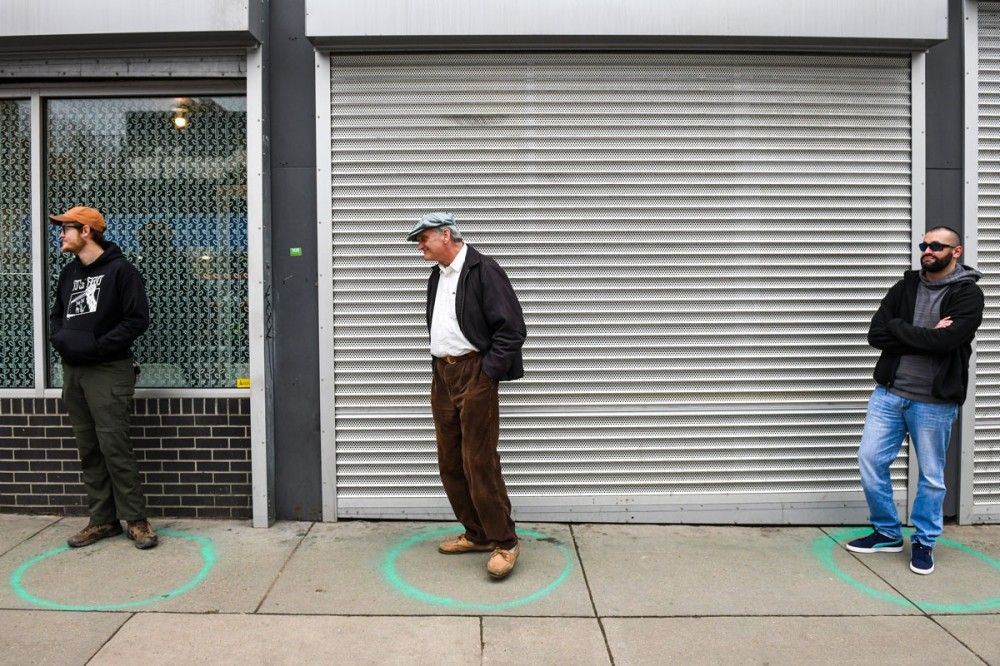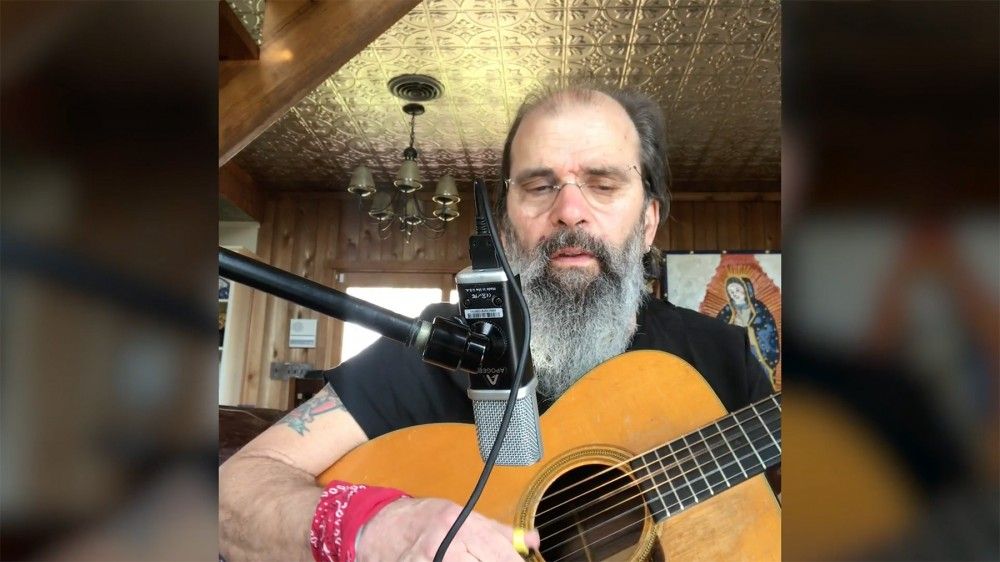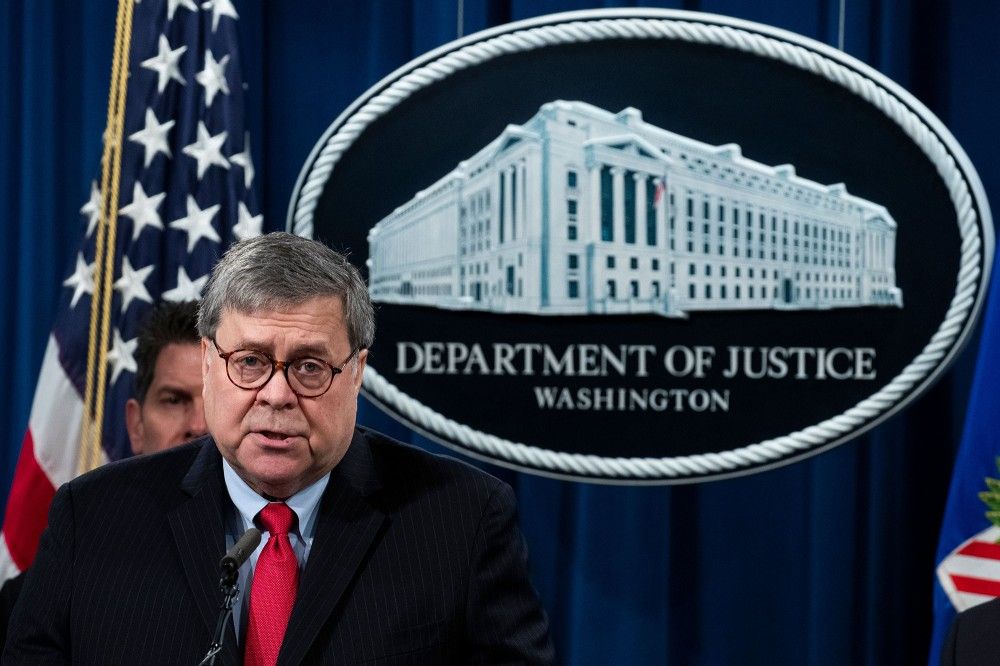
The Reason You're Exhausted Is 'Moral Fatigue'
A few short weeks ago — in what now feels like a different lifetime — most of us went about our days making a series of low-impact decisions and not thinking twice about them. Bacon-egg-and-cheese sandwich from the cart outside the office for breakfast? Don’t mind if I do. A quick road trip to see your grandma upstate? She’ll be so happy to see us! Getting together with friends for a basketball game in the park or a few drinks in a bar? Why the hell not?
And then came the . It took a while — and many confusing, unhelpful press conferences — before people really started to understand the magnitude of the novel coronavirus and , the disease it causes. But now, most of us (hopefully) are more familiar with the concept of public health, and having to assess our own actions in terms of how they could impact the rest of the population. We’re faced with a lot of the same decisions from our pre-corona lives — except now, even the most mundane activities have turned into moral dilemmas. Whether it’s trying to decide if you should visit a sick family member, order delivery, take public transit, or take a trip to the grocery store, we now have to think through the potential implications of many of our totally normal, everyday actions and decisions in a way we never had to before, because of how they could affect others. This is called “moral fatigue,” and it’s exhausting.
As a culture that was all but burned out before the coronavirus pandemic hit, the past few weeks of seismic societal shifts have made us readjust in ways most of us never imagined. For many of us, our home is now our office (if we’re fortunate enough to still have a job) and doubles as a classroom for those with kids. Others are still forced to go out to work every day in strange, unrecognizable cities. And as of right now, we don’t have a clear end point to this new way of life, nor any sort of roadmap for navigating a situation like this.
When local and state governments first started enacting social distancing (though the World Health Organization is now transitioning to the term “physical distancing” to emphasize that we don’t have to give up social connections) policies, there was a clear adjustment period. As Americans, we’re not used to limiting our personal autonomy to help the greater good. This meant it was hard to convince people that even if they’re not in a high-risk group or worried about getting sick themselves, they should stay away from other people, in order to not spread coronavirus to more vulnerable groups. As the death toll rises, and reports of increasing numbers of younger people being hospitalized surface, we’re finally starting to understand how serious this pandemic is, and the impact each one of us can have on the outcomes — whether or not we realize it.
In most of our everyday lives, this comes into play when we’re making what used to be routine decisions. Let’s take the example of going to the grocery store. A few weeks ago, you probably would have made the trip without a second thought. But it’s no longer that simple. If you leave your home to go to the supermarket — a public place where everyone is touching everything from food to carts to money — it could put you in contact with the virus if someone coughs or sneezes near you or on something you touch. Of course, there’s the concern over whether you’ll get infected, but beyond that, we now have to consider whether we could then unknowingly pass the virus on to someone else at the store, on the bus, or in our own homes, and then whether that person will pass it along to others, and so on, and so on.
“We are now, in many ways, thinking about things that we wouldn’t have previously reflected on,” Dr. Michael Baur, associate professor of philosophy at Fordham University, who specializes in natural law and moral philosophy, tells Rolling Stone. “The chain of causality has always been there, but now it has become important for us to be more reflective about the multiple layers of complex causality and the real scope of our decision-making.”
As much as we’d like to believe that we’re all lone wolves who can fend for ourselves and prioritize our own best interests, in reality, that’s never how it worked. “It’s a fiction to think that we’re not already deeply connected to one another — we always have been,” Baur explains. “It’s just that the consequences now have been ratcheted up in a different way. And because of that, even our most simple actions and decisions can now have moral consequences that impact someone else’s life and health very significantly.”
And that is where moral fatigue comes in. Now that many routine aspects of our lives involve high-stakes decision-making, it’s a lot for our brains to process. According to Baur, this is because we usually allow ourselves to be lazy and oblivious to our interdependence, taking it for granted. “We’re now forced to be aware of it,” he says. “Now, small types of interaction can have severe consequences. It requires an added level of mental effort, carefulness and reflectiveness.”
Unsurprisingly, moral fatigue has taken a toll on our . But of course, we’re not texting our friends and therapists about how exhausting it is to have to carefully consider so many different options before making a decision — moral fatigue is sneaky. It’s something that many now experience without recognizing the added mental burden.
“Routine activities now require critical thinking, and it’s leaving my patients feeling not only exhausted, but on edge,” Dr. Dion Metzger, a psychiatrist practicing in Atlanta, Georgia tells Rolling Stone. “It has actually led to people isolating even more than the quarantine requires. Instead of deciding to go through the drive-through or order in delivery for lunch, they choose to just eat what’s in the pantry.”
Similarly, Dr. Adam L. Fried, a professor of psychology at Midwestern University and a clinical psychologist with a private practice, has noticed that the overall stress of the coronavirus outbreak has taken a toll on many of his patients — on top of having to deal with moral fatigue. “For many, there seems to be more at stake in terms of these everyday decisions, both for ourselves, our loved ones and others around us,” he tells Rolling Stone. “Many of us aren’t accustomed to having to consider severe possible consequences resulting from normally mundane errands and tasks.”
Of course, the moral fatigue is taxing in itself, but we also have to keep in mind that making any type of difficult or ethically complex decision is stressful, even under the best circumstances. In other words, it’s not only the frequency at which we’re now making tough choices — the decision-making process itself can be mentally and emotionally exhausting when there is not a clear choice. “We know from research with professionals, such as health care workers, that having to make difficult ethical decisions, in which there may not be a clear ‘right answer,’ can be highly stressful and take an emotional toll on people,” Fried explains. “These can include feeling emotionally exhausted, increased feelings of self-doubt and burnout.”
Making these types of decisions feels like a “no win” situation: No matter what you decide, there will be positive and negative consequences. “The struggle to come up with the best answer, knowing that there may be no 100-percent ‘correct’ one, can leave many feeling frustrated and exhausted,” Fried says. “This is coupled with the anxiety associated with not knowing if things will worsen and not knowing when this situation will end.”
Until some sort of end is in sight, there are ways to help cope with moral fatigue and the stress of these higher-stakes decisions. First, Fried says that he encourages patients to recognize and acknowledge that we are in a truly unprecedented situation and that these decisions are tough. “Talking with supportive friends and family can be really helpful in terms of processing feelings, normalizing fears and doubts and talking through decision-making,” he adds. Metzger advises her patients not to overwhelm themselves with too many decisions at once. “Break it up into one day at a time,” she says. “Anxiety has a way of making everything feel urgent.”
And as exhausting as moral fatigue can be, we’re experiencing it because we’re taking the time to reflect more on how our decisions and actions may affect other people. Of course, situations like the one we’re in now can also have the opposite effect, Baur says, causing people to become more selfish and self-protective (we’re looking at you, toilet paper hoarders). But for now, it can help to focus on the potential good that can come from this shift in public mindset. “This is a sort of wake up call for all of us,” Baur says. “The added strain and effort, on the one hand, is unpleasant, and our lives are more complicated. But on the other hand, it’s potentially a very good thing, because the alternative is to live the usual oblivious life where we don’t recognize our interdependence.”



